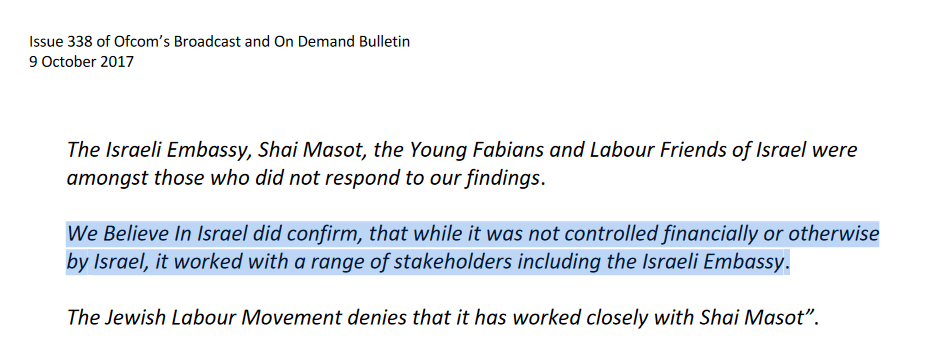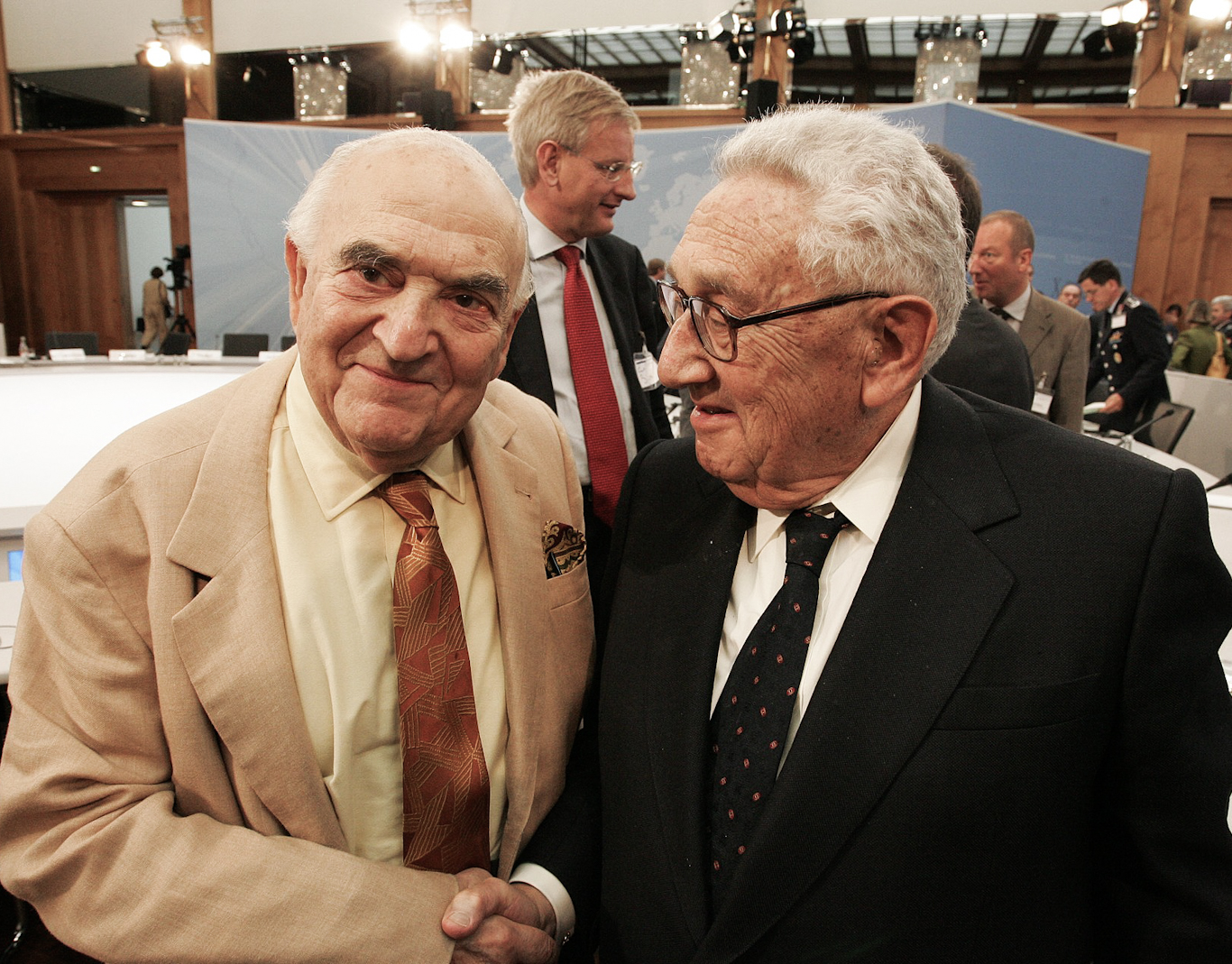Shadowy, Israel-Linked Group Attempts to Censor Pro-Palestine Spotify Artists

Alan Macleod uncovers how a shadowy pressure group linked to Israel is attempting to silence artists advocating for Palestinian liberation on Spotify.
A shadowy, Israel-linked pressure group is attempting to remove artists supporting Palestinian liberation from Spotify. We Believe in Israel, an outgrowth of the Britain Israel Communications and Research Center (BICOM), is lobbying both the U.K. government and the popular music streaming platform in their efforts to censor a range of artists – including MintPress News’ Lowkey. Studying these organizations’ key figures, MintPress can reveal that the lobby group may have sympathetic ears in key positions in both.
COORDINATED ATTACK
Earlier this year, following a long campaign from We Believe in Israel, Spotify removed a host of Arabic-language songs containing incendiary lyrics towards the state of Israel. In a press release, the group welcomed the decision but made clear that they saw this as only the first step in a much wider campaign of censorship.
“It’s good news that Spotify have finally listened to public disgust about hosting clearly antisemitic content which contravenes their own content policies, including directly inciting violence against Israelis,” said the group’s director, Luke Akehurst (the notorious Labour Party operative). “Now we need them to look at why they are hosting explicitly antisemitic and conspiratorial songs by Lowkey and Ambassador MC,” he added, defaming both artists simultaneously, while clearly sending a signal that they were next.
It was also widely reported last month that We Believe in Israel was behind Spotify’s decision to remove Palestinian pop star Mohammed Assaf’s “My Blood Is Palestinian” from its platform. However, it later transpired that the reason the 2012 Arab Idol winner’s music disappeared was a contractual dispute between his record label and the streaming service.
We Believe in Israel – who have conceded that they work closely with the Israeli Embassy but insist they are not directed by them – had been campaigning for some time to cleanse Spotify. Last year, it launched a petition which gained 4,000 signatures and directly lobbied the British Ministry of Digital Culture, Media and Sport on the matter.

Leading the drive was We Believe in Israel’s campaign manager, Rachel Blain. “Spotify must take down songs promoting hatred” she thundered in an article in The Times of Israel. Before joining We Believe in Israel, Blain had worked at the Zionist Federation, the British Board of Deputies, and at an unnamed embassy in London. Given her professional background, it is likely that that embassy was the Israeli one.
“The presence of Lowkey’s music is particularly offensive,” Akehurst complained, claiming that his songs were a “direct incitement of violence towards Jews and Israelis”. Beyond a few lyrics, which, even if uncharitably interpreted, hardly rose to this level, he provided little by way of evidence. Telling, however, was the fact that We Believe in Israel singled out songs of Palestinian liberation for particular vitriol, especially Lowkey’s “Long Live Palestine” and “Long Live Palestine Part 2” and Ambassador MC’s “Free Palestine”.
The campaign failed spectacularly, however, as it elicited a huge worldwide pushback. A counter-petition demanding Spotify not buckle to the Israel lobby’s pressure drew tens of thousands of signatures, including from hundreds of the world’s leading intellectuals, artists and musicians. This included dozens of the most prominent Jewish individuals in the creative industries. Akehurst seemed dumbfounded by the failure of his crusade.
Israel Lobby’s Efforts to Cancel Antiwar Rapper Lowkey Backfire Following Global Pushback
The reason for targeting Lowkey in the first place was also the reason why the plan ultimately backfired. As a hip hop artist recognized as one of the most gifted of his generation, Lowkey has amassed a worldwide following of tens of millions of people. His relentless social critique and his steadfast support of Palestinian rights may have effectively banned him from mainstream airwaves, but has gained him enormous respect from critics, musicians and fans alike. His three “Long Live Palestine” tracks have become anthems within the pro-Palestine movement, and his skill has seen him collaborate with some of the most notable names in the music industry. As far back as 2011, The Jewish Chronicle noted that his mere existence was a “potential nightmare” for the state of Israel. Thus, when pro-Israel groups attempted to cancel him, they met with global pushback.
STRATEGIC SPYING
We Believe In Israel’s Spotify lobbying attempts intensified last June, at the same time as the music giant announced its Safety Advisory Council – a body that would decide what content to remove from the platform on security and welfare grounds. Managing to secure two seats on the council was the Institute for Strategic Dialogue (ISD), a London-based think tank with close links to the pro-Israel lobby, including We Believe in Israel itself.
Founded in 2006, the Institute for Strategic Dialogue brands itself as a body dedicated to analyzing and combatting all forms of political and religious extremism. However, scrutinizing its founders, key staff, output and funding sources suggests that they may have ulterior motives.
The organization was co-founded by socialite and media mogul, Baron Weidenfeld. Serving as political adviser and Chief of Cabinet to Chaim Weizmann, the first president of Israel, Weidenfeld spent his entire adult life relentlessly pursuing the Jewish state’s expansion. This included launching a global P.R. campaign to convince the world that West Jerusalem should belong to Israel. He was also a trustee of the Jerusalem Foundation, an organization that builds illegal Israeli settlements. Upon his death in 2016, he was rewarded with a burial at the ancient Mount of Olives in Jerusalem – one of the holiest sites in Judaism – an honor that very few figures receive.

The Institute for Strategic Dialogue’s current chair is Michael Lewis. Before joining the ISD, Lewis was director of BICOM, the group that birthed We Believe in Israel. Thus, BICOM/We Believe in Israel is now petitioning the Spotify Council while their former director is now in charge of an organization that sits on that panel and will help decide whether to ban pro-Palestinian artists.
The Institute for Strategic Dialogue is funded by a host of NATO governments, including Germany, the United Kingdom, Denmark, Canada, Finland and the Netherlands. It is also bankrolled by the National Democratic Institute and the International Republican Institute – subsidiaries of the notorious National Endowment for Democracy, a CIA front organization set up by the Reagan administration to carry out many of the agency’s most controversial (and illegal) activities.
Spying and surveillance are not unknown to the ISD. Earlier this year, the Electronic Intifada revealed that the British government had secretly paid the institute to help carry out a spying operation on Palestinian citizens. Its ranks are filled with national security state-adjacent figures, former fellows of NATO’s Atlantic Council and individuals who helped advise on the occupation of Afghanistan. MintPress also found at least a dozen ISD employees who received postgraduate degrees from the Department of War Studies at King’s College, London, a university department infamous for training the West’s top spies, including British MI5 and MI6 agents, as well as CIA operatives.
Therefore, while it presents itself as a counter-extremism organization, there are grounds to suspect that, to the Institute for Strategic Dialogue, any form of Palestinian resistance to Israeli occupation might be considered extremist. That Spotify has allotted two spots on its council to the organization is cause for concern.
A School for Spooks: The London University Department Churning Out NATO Spies
RIENDS IN HIGH PLACES
In lobbying the U.K. Department of Digital Culture, Media and Sport, We Believe in Israel is likely pushing at an open door, considering some of the key figures in the organization. Chief amongst these is the Secretary of State herself, Lucy Frazer. Before entering politics and joining the Conservative Cabinet, Frazer had worked at the Israeli Ministry of Justice – a post suggesting that she may be sympathetic to We Believe in Israel’s goals.
The Conservative Party in general has been extremely pro-Israel. The Conservative Friends of Israel (CFI) – the party’s principle pro-Israel association, once noted that a remarkable 80% of Tory MPs were members. The organization works alongside with other pro-Israel groups, including We Believe in Israel. The aforementioned Rachel Blain left We Believe in Israel in 2022 and is now the CFI’s public affairs director.
The CFI is a highly influential organization. In 2012, it helped the future prime minister Boris Johnson win re-election as mayor of London, organizing parts of his campaign, while it later managed to block Johnson appointing Alan Duncan to the position of Middle East Minister, due to the latter’s support for Palestinian rights. A 2021 report from Declassified U.K. found that one third of the Tory cabinet, including Johnson himself, were funded by Israel or by pro-Israel groups.
WORLDWIDE CENSORSHIP CAMPAIGNS
Its public image rapidly deteriorating, Israel and its supporters have repeatedly attempted to remove opposing voices from the airwaves or the internet. Former Israeli justice minister, Ayelet Shaked boasted that she worked closely with Facebook to censor Palestinian voices, with the Silicon Valley corporation agreeing to take down around 95% of the content she asked them to. Today, former Director General of the Ministry of Justice Emi Palmor sits on Facebook’s advisory council, the board ultimately responsible for content moderation on the world’s largest news and social media platform.
At key moments of worldwide political attention, Palestinians have found their Instagram accounts blocked, and still cannot use services such as PayPal. Those organizing cultural boycotts of Israel because of its systematic oppression of its indigenous population find themselves attacked and smeared. Lowkey is no stranger to this, having had gigs and speaking opportunities cancelled.
Nevertheless, Western support for Israel and its crimes is waning as the country loses the battle for public opinion. Faced with this reality, its supporters are increasingly turning to nefarious means to shut critics up. While Spotify has, so far, stood up to attempts to ban artists like Lowkey and Ambassador MC, it should be clear that big media organizations are not global town squares, but corporate Western platforms that will always be ambivalent (at best) to Third World struggles and movements to affect change. This is especially true when groups like the Institute for Strategic Dialogue are placed in charge of moderating them.
Shadowy, Israel-Linked Group Attempts to Censor Pro-Palestine Spotify Artists
Feature photo | Illustration by MintPress News
 TheAltWorld
TheAltWorld 
2 thoughts on “Shadowy, Israel-Linked Group Attempts to Censor Pro-Palestine Spotify Artists”